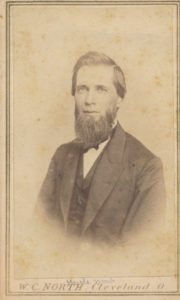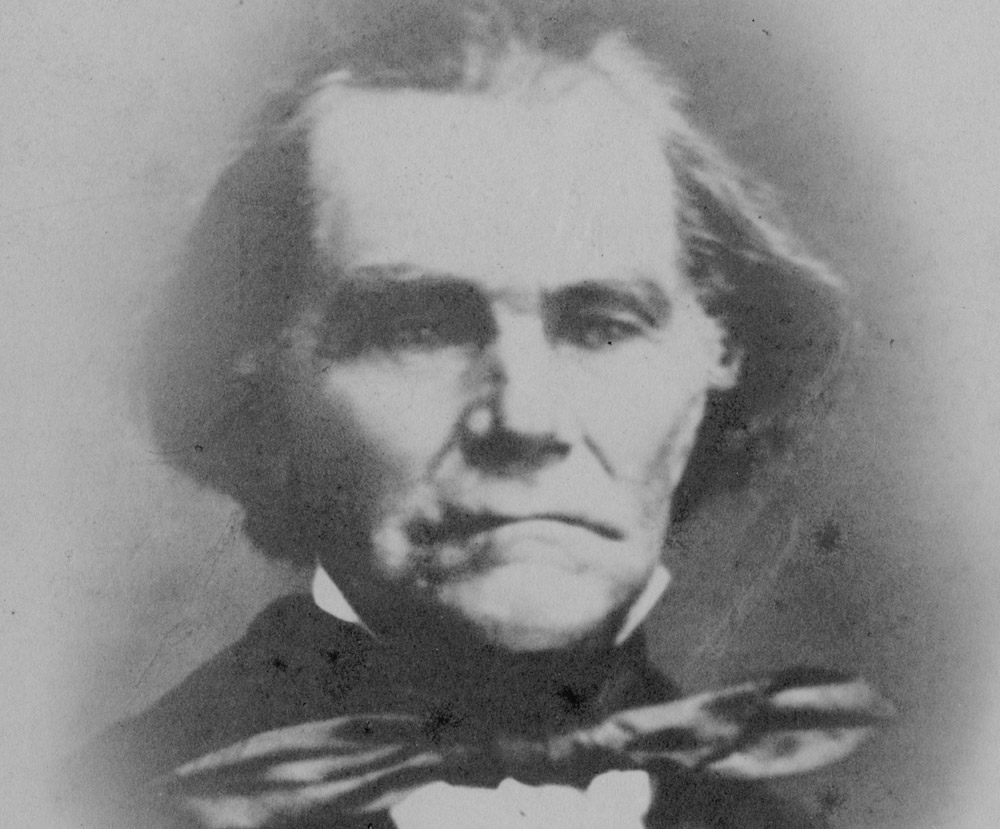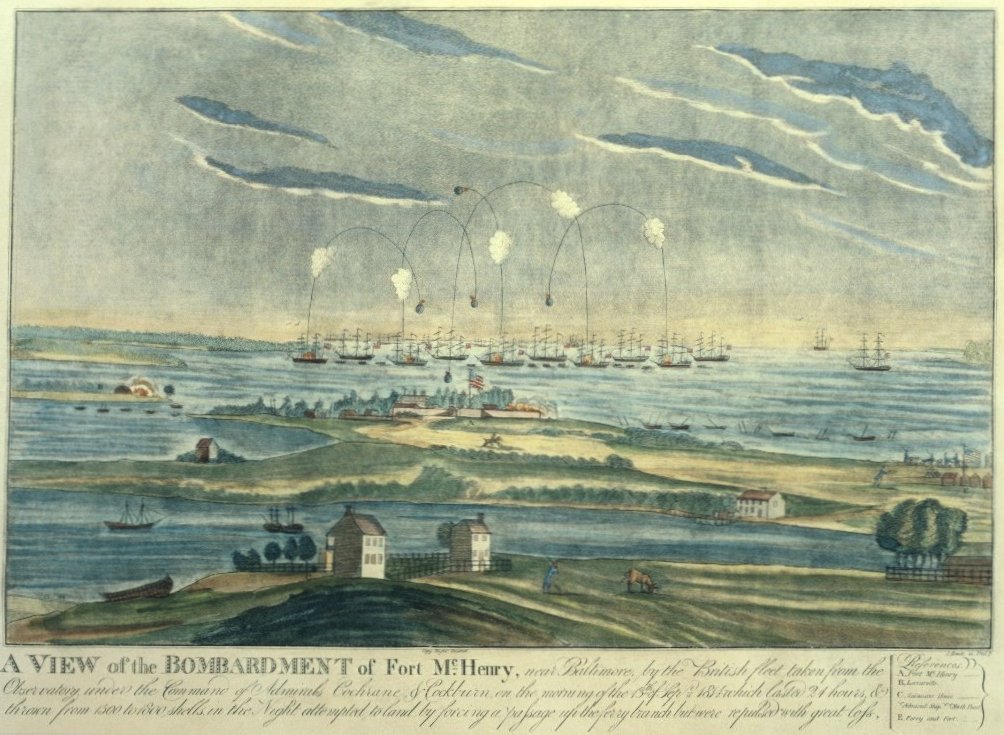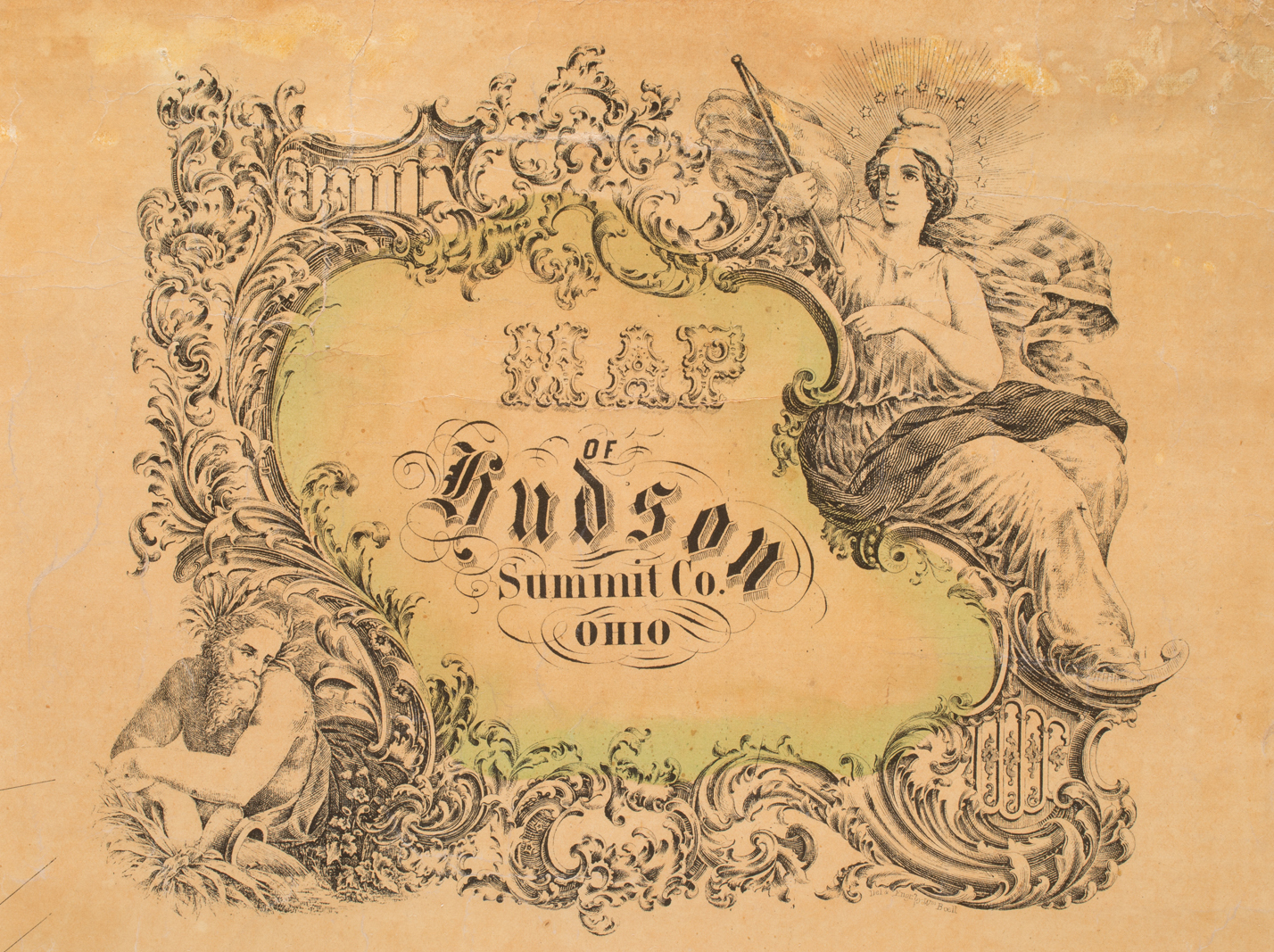The American Civil War came upon Hudson in the 1860s as much as it did in any city or town across America. Perhaps feelings were even stronger here owing to Hudson’s role in the anti-slavery movement, through Western Reserve College, the Underground Railroad and strong abolitionist sentiments. Hudson’s John Brown led the raid on the federal armory at Harper’s Ferry Virginia, and was executed a year before Lincoln’s election.
The fighting began with the shelling of the federal post, Ft. Sumter, off Charleston SC in April 1861. It effectively ended four years later when rebel Gen. Robert E. Lee surrendered to Union Gen. Ulysses Grant at Virginia’s in April 1865. The North sent 2 million soldiers into the fight, the South 1 million. Over 300,000 Ohioans joined up.
In Hudson, 150 enlisted for the Union. At Hudson’s Western Reserve College another 100 students and staff joined up, many in the same unit, the 85th Ohio Volunteer Infantry (OVI). Many veterans moved to Hudson in the boom years after the war.
The United States had a small number of federal army and naval forces; most soldiers joined the forces provided by the individual states. The military was made up of divisions of Infantry, Cavalry, Artillery, Sharpshooters, Colored Troops, and unassigned units. Initially, men served in 3-month tours. As the war continued, the terms of service were expanded. There was conscription for males age 20-45. Most soldiers were volunteers and only about 2% of those who served were drafted. Paying someone to substitute for you was permitted, though not always popular with your neighbors.
Hudson merchant John Buss recorded in his diary on February 11, 1865 that a mob dragged 39 year old Carlisle Birge out of the Buss Store “with the promise of ducking him in the reservoir if he did not pay for his war draft”. Mr. Birge paid $50 “and the mob let him off”.
Troops were organized in local communities and soldiers would frequently know each other. Many who joined up from Western Reserve College were in the same units of the 85th Ohio Volunteer Infantry (OVI). Early on, they trained on the open fields at WRC. Others from Hudson served as officers, infantrymen, quartermasters, surgeons, musicians and chaplains.

Civilians participated by visiting soldiers in their camps; sending uniforms, bedding, and other needed items. More formally, civilian aid organizations were created. The federal government established the United States Sanitary Commission in June 1861. The purpose of the USSC was to promote sanitary and healthful methods for treating sick and wounded soldiers. Matthew C. Read, later a mayor of Hudson, was an agent for the USSC. He spent most of his service near the front lines around Nashville TN.
The Hudson Ladies Aid Society was created in 1861 to provide support to the USSC.A woman’s division of the USSC, the USSC. 131 women of Hudson were on a 1864 roster of the society. They gathered “necessities and comforts” such as: bandages, blankets, bed sacks, sheets, towels, canned foods and spirits. The women met in the basement of the Congregational Church. Funds were raised by selling yarn, holding “dime socials”, and soliciting donations. Frances L Trowbridge (1837-1917) was one of the local treasurers.
While patriotism and support for the war was most commonly found, there was opposition to the fight and to President Lincoln in Hudson. The Peace Democrats wanted a peaceful settlement with the South. They disagreed with some of Lincoln’s presidential actions, such as suspending habeas corpus rights. Public shaming of these “Copperheads” and “Butternuts” was common. In 1863 a list of 43 Hudson Copperhead voters was published locally, including the names of 9 citizens who did not vote. Hudson resident, Judge Van Rensselaer Humphrey was the most prominent local Copperhead, though his son, Calvin Humphrey, served as a sergeant with the 85th OVI.
There were several notorious prison camps during the Civil War. Hudson recruits served guard duty at Columbus’ Camp Chase and the officer prison camp on Johnson’s Island in Lake Erie. Captured Union soldiers from this area were found in Southern camps at Libby VA, Andersonville GA and Cahaba AL. A number of the released Cahaba prisoners headed North on the over-loaded SS Sultana that exploded on the Mississippi River in April 1865.
There are two markers in Hudson that list the names of 26 soldiers who died of war-related causes. One is near the flag pole in the Markillie Cemetery. The other is near the main entrance to Memorial Stadium at Hudson High School.
If a person stands on the Hudson Green you can walk a couple of blocks in two directions and confront history and Hudson’s role in the Civil War and the lead up to this great conflict. In 1837, John Brown spoke at the Congregational Church, now site of the Town Hall, and dedicated his life to the abolition of slavery. In 1854, former slave, Frederick Douglass, gave his famous commencement address, on the “Claims of the Negro Race”, at the Western Reserve College Chapel. And, in 1861, in a snowstorm, Abraham Lincoln came to the train’s back platform to acknowledge the crowd while en route to lead a nation falling into Civil War.
Learn More
MANUSCRIPT COLLECTIONS
Two letters written by George W. Gaylord, a Civil War soldier from Hudson, Ohio, during his time in the service.
Ladies Aid Society (Hudson, Ohio) records
Records of the Ladies Aid Society (Hudson, Ohio), an organization of women in Hudson who provided supplies to sick and wounded soldiers during the Civil War.
The collection consists primarily of Hudson native William Winslow Wilder’s (1841-1865) personal correspondence while enlisted and serving in the Union Army (1861-1865).
OTHER RESOURCES
Virtual Walking Tour: The Anti-Slavery Movement and the Underground Railroad in Hudson, Ohio
Virtual Walking Tour: Hudson in the Civil War (coming soon!)



